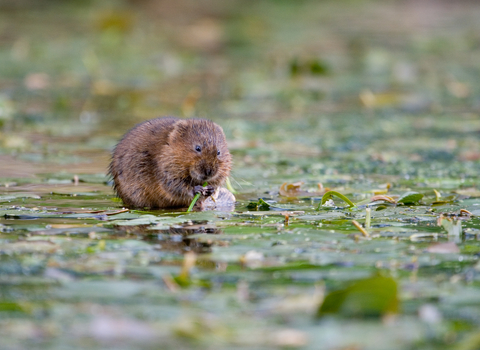The 88-page Wilder Future report shines a spotlight on rare, endangered or unusual examples across more than 100 nature reserves and other wild places where internationally important and diverse populations of species are supported, some of which are globally scarce. Selected case studies of species and of habitats demonstrate why each is of such importance.
Summed up in the report's subtitle 'Towards a wilder future for the habitats, species and conservation in Bedfordshire, Cambridgeshire and Northamptonshire', the report celebrates successful local conservation that works, profiling the work being done by WTBCN in ensuring the nature recovery network that is needed for wildlife, as well as warning of the importance of protecting habitats.
CEO Brian Eversham says: "This report highlights several aspects of the detailed work of the Trust, especially for rare and less well-known species, illustrating why it is vitally important that we invest in the nature in our three counties now more than ever as it faces the threats of unsustainable development and rapid climate change."
Monitoring and Research Manager Josh Hellon says: “I'm excited to see the release of this report - there's so much to shout about in this region; people talk to us daily about amazing species and places, and while we have all this in our heads to date it's not been collated in a publication. Producing this was a perfect lockdown project, and now, especially emerging from a pandemic, it's great to have positive information to share with people.”
The report considers rare, endangered and overlooked species from tansy beetles, oxlips, water voles and dormice to spined loach and bryophytes. Compiled by Ryan Clarke (ex-BCN Research and Monitoring team and Northants county recorder, now at Cumbria WT), along with a network of passionate naturalists, emphasis is given to the importance of evidence-based conservation and biological recording. At the heart of the Trust's conservation work is monitoring and research, with dedicated teams carrying out extensive surveys annually, which encompass a wide variety of habitats and taxonomic groups, the results of which feed into management plans, informing conservation measures.
And vitally the report examines the biggest issue of our time, climate change, already bringing fundamental changes to the ecology and timing of life-history events such as flight periods and flowering period of species, and what can be done to conserve the species currently supported on site, through habitat creation.







